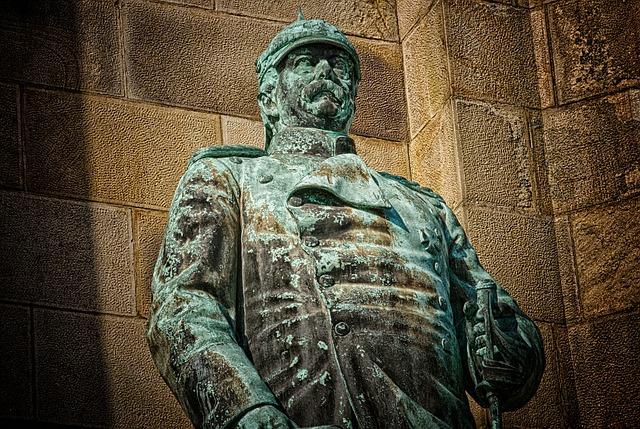Awkward alarum: China, Vanuatu and Oz
Posted By Graeme Dobell on April 16, 2018 @ 06:00

Australia’s reaction to the idea of a China getting ‘a full military base’ in Vanuatu ranged from aghast to agog.
Coming amid what’s already a big chill in Canberra–Beijing relations, the base brouhaha is a cool wind from the South Pacific. It’s decidedly awkward, causing Canberra to hop around in an alert and alarmed manner.
Consider the alarum from several angles: the Fairfax reporting, Vanuatu’s response, China’s expanding role in the South Pacific and Australia’s interests.
Fairfax’s David Wroe kicked the yarn into life by reporting ‘preliminary discussions’ between Vanuatu and China but ‘no formal proposals’ [1].
Wroe is a good journo with a solid track record as Fairfax’s defence and national security correspondent. He’s based in Canberra in the parliamentary press gallery. The sourcing of the story was in Wroe’s third paragraph: ‘senior security officials believe Beijing’s plans could culminate in a full military base’. By the end of the week, Wroe’s sourcing was more explicit [2]: ‘Top national security figures in Canberra and Washington are deeply concerned about China’s ambitions for Vanuatu and its overtures to the small nation.’
In reading reactions to Wroe’s report, refer to a line beloved of journos and often attributed to Bismarck: Never believe anything until it’s officially denied [3].
In that spirit, always note what’s actually denied. Thus, Prime Minister Malcolm Turnbull’s [4] response started with Vanuatu’s assurance to Australia ‘that no such request has been made’. A Bismarckian reading would be no formal request, but perhaps informal discussions. Turnbull then raised the strategic red flag: ‘We would view with great concern the establishment of any foreign military bases in those Pacific Island countries and neighbours of ours.’
The eventual denial statement from Vanuatu’s Prime Minister Charlot Salwai [2] said his government ‘will fiercely oppose any attempt to build a military base in the country’ while stressing close ties to China as a ‘friend and global leader’.
Most of the discussion about a China ‘base’ in Vanuatu focuses on the naval dimension and the future use/ownership of wharves built by China. Other bits of the Chinese bureaucracy could also be involved.
China’s ambitions in space mean it would like to have tracking facilities close to the equator. Currently, China has to deploy ships to do space tracking work [5].
The previous Chinese ground station [6] in the South Pacific was in Kiribati in the six years to 2003—it was abruptly closed when diplomatic recognition was switched to Taiwan.
As China builds its power and prerogatives in the South Pacific, it can reach for permanent facilities to serve those interests.
We’ve come a long way since the previous decade when China’s overriding concern in the South Pacific was the fierce fight with Taiwan for diplomatic recognition [7]. That brawl caused China to ramp up representation so it had more diplomats in the South Pacific than any other country [8].
By the end of the last decade, China and Taiwan had reached a tacit ceasefire in the recognition war. With that de facto truce holding, China has widened its vision, building its role as a key aid giver and business partner, serving the new and expanding Chinese diaspora in the Islands.
What China has won in the South Pacific is both simple and significant. As with Southeast Asia, China is now a significant player that must be considered and consulted when regional decisions are being made.
China asserts the same right that it has in East Asia: on strategic, diplomatic or economic questions, China’s interests must be respected. The South Pacific is a relatively cheap place to play. Not much money gets China a lot.
The way China talks to the Islands is in clear contrast to Australia’s language. Canberra’s emphasis on good governance, economic reform and anti-corruption policies has no counterpart when Beijing comes calling.
Apart from the issue of Taiwan, China runs a value-free foreign policy. There is no overt ideological struggle between Australia and China because only Canberra is pushing a value system.
The Islands are starting to confront the reality that China doesn’t argue about principles, but that in offering development loans, it wants the principal repaid. The South Pacific is used to Western aid that might have conditions but comes as a grant—no repayment needed. Not so Beijing. China does loans, not grants. The argument about Chinese influence concerns finance as well as strategic vision.
The China factor adds a competitive flavour to Australia’s offer to the South Pacific of security and economic integration [9]. The integration agenda is a small-steps discussion [10] with the Islands that should run for decades. But that dialogue is also about Australia reinforcing its traditional role in the South Pacific in response to growing Chinese influence [11].
The traditional Oz response to external powers sailing into the South Pacific—dating from Malcolm Fraser’s alarm at the arrival of the Soviet Union—is to ramp up the rhetoric and throw more aid at the Islands. The tradition is set to get another run with Vanuatu.
China, though, challenges Australia to offer more than scares and cash. Canberra needs to offer its vision for the South Pacific community [12] and outline what we’ll do to build that community.
Article printed from The Strategist: https://aspistrategist.ru
URL to article: /awkward-alarum-china-vanuatu-oz/
URLs in this post:
[1] ‘preliminary discussions’ between Vanuatu and China but ‘no formal proposals’: https://www.smh.com.au/politics/federal/china-eyes-vanuatu-military-base-in-plan-with-global-ramifications-20180409-p4z8j9.html
[2] Wroe’s sourcing was more explicit: https://www.smh.com.au/politics/federal/vanuatu-pm-defends-china-deals-but-vows-to-oppose-any-new-foreign-military-base-20180412-p4z96m.html
[3] Never believe anything until it’s officially denied: https://quoteinvestigator.com/2015/08/07/believe/
[4] Prime Minister Malcolm Turnbull’s: https://www.pm.gov.au/media/doorstop-m1-pacific-motorway-announcement
[5] ships to do space tracking work: https://gbtimes.com/china-deploys-yuanwang-7-space-tracking-ship-ahead-tianzhou-1-cargo-mission
[6] Chinese ground station: http://www.cis.org.au/commentary/articles/why-china-first-wooed-then-jilted-kiribati/
[7] fierce fight with Taiwan for diplomatic recognition: https://www.lowyinstitute.org/publications/china-and-taiwan-south-pacific-diplomatic-chess-versus-pacific-political-rugby
[8] more diplomats in the South Pacific than any other country: https://www.aph.gov.au/Parliamentary_Business/Committees/Senate/Foreign_Affairs_Defence_and_Trade/Completed_inquiries/2004-07/china/report02/c10
[9] security and economic integration: /foreign-policy-white-paper-2017-integrating-the-south-pacific/
[10] small-steps discussion: /australias-agenda-for-integrating-the-south-pacific/
[11] in response to growing Chinese influence: /australia-frets-fights-south-pacific/
[12] vision for the South Pacific community: /australian-ambition-aspiration-south-pacific-community/
Click here to print.